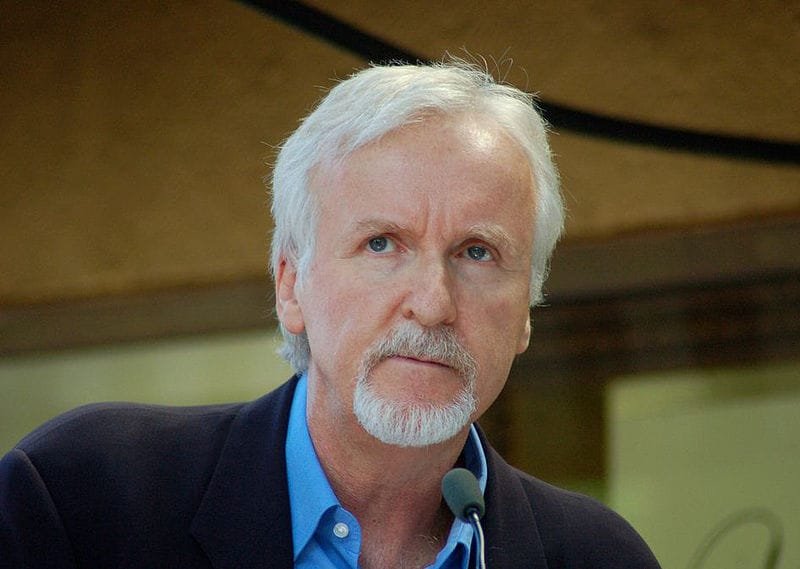James Cameron Reveals How AI is Revolutionizing Filmmaking: The Game-Changer That Perfects Every Scene!

James Cameron Reveals How AI is Revolutionizing Filmmaking: The Game-Changer That Perfects Every Scene!
In the ever-evolving landscape of filmmaking, the integration of artificial intelligence (AI) is ushering in a new era that promises to redefine creativity and enhance the cinematic experience. Renowned filmmaker James Cameron recently shared his groundbreaking insights on how AI is transforming the industry, making the process more efficient while also allowing for unparalleled artistic expression.
The AI Revolution in Filmmaking
As a pioneer of innovation in cinema, Cameron emphasizes that AI is not merely a tool for filmmaking; it’s a partner that aids directors, cinematographers, and editors in crafting visually stunning narratives. Here’s an exploration of how AI is becoming a game-changer in the filmmaking world:
- Enhanced Script Analysis: AI tools are now capable of analyzing scripts and predicting their market performance. By examining various data points, including audience preferences and historical cinematic trends, filmmakers can make informed decisions about the direction and potential success of their films.
- Efficient Pre-Production: Generative AI can assist in pre-production by creating detailed storyboards and visual concepts from mere text prompts. This streamlines the creative process, enabling directors and producers to visualize their projects more effectively.
- Customized Content Creation: AI algorithms can generate dialogue, character arcs, and even entire scenes based on existing narratives. This feature empowers filmmakers, providing them with a wealth of material to work from, ensuring every scene contributes to the overall story arc.
- Real-Time Editing: Advanced AI technologies can analyze footage as it is being shot, offering real-time feedback and editing suggestions. This capability significantly reduces post-production time and allows directors to experiment with different cuts on the fly.
- Virtual Cinematography: AI-driven cameras can adapt to changing lighting conditions and optimize shot composition, allowing cinematographers to focus more on creative decisions rather than technical challenges.
The Unique Advantages of AI in Filmmaking
The revolution brought about by AI in filmmaking presents several advantages that not only enhance the quality of films but also improve the overall workflow. Here are some key benefits:
- Cost Efficiency: With AI automating several aspects of production, filmmakers can save time and resources, making cinema more accessible for independent creators.
- Heightened Creativity: By automating repetitive tasks, AI frees artists to focus on more creative aspects of film-making, ultimately enriching the viewer’s experience.
- Informed Decision-Making: AI’s data analysis capabilities provide filmmakers with deeper insights into audience behavior, preferences, and trends, allowing them to tailor content more effectively.
- Increased Personalization: AI can deliver content tailored to individual preferences, paving the way for bespoke filmmaking experiences that resonate with diverse audience segments.
A Closer Look: How AI Perfects Every Scene
Cameron’s passion for storytelling is matched by his enthusiasm for technological advancements. He discusses how AI is not about replacing human creativity but enhancing it. For instance, AI-driven color grading systems analyze various parameters to ensure visual consistency, thus allowing cinematographers to achieve artistic goals with precision.
Moreover, the use of AI in CGI has taken visual effects to new heights. By analyzing vast amounts of data, AI can create realistic renderings of environments and characters, significantly reducing the time and cost needed for post-production. This shift enables filmmakers to focus on narrative and character development rather than the technical aspects of visual storytelling.
Navigating the Ethical Landscape
Despite its numerous benefits, notably less publicized are the ethical considerations surrounding AI in filmmaking. Issues such as copyright, job displacement, and creative authenticity remain concerns within the industry. Cameron advocates for an approach that maintains human oversight in the creative process, ensuring that while AI offers unparalleled assistance, the core of storytelling remains rooted in uniquely human experiences.
Additionally, as AI systems become more sophisticated, the importance of data privacy and security in film production cannot be understated. Filmmakers must be vigilant about how they collect, store, and use data, ensuring that they do not infringe on rights or compromise personal information.
Expert Insights into AI’s Future in Cinema
To truly understand the ramifications of AI in filmmaking, we consulted experts from the fields of technology and cinematography. Dr. Jane Mitchell, a leading AI researcher, argues that the future of AI in film lies in its ability to facilitate collaboration between machines and humans:
“AI is not here to replace filmmakers; it is here to complement their skills and enhance their storytelling capabilities. The best films will emerge at the intersection of human emotion and technological advancement.”
Conversely, renowned director Alex Thompson warns against over-reliance on AI:
“While AI can generate ideas and optimize processes, we must remember that the heart of cinema beats in our shared humanity. A film devoid of genuine emotional resonance, no matter how visually impeccable, fails to connect.”
Case Studies: AI in Action
Several recent projects have showcased the profound impact of AI on filmmaking. Notably:
- The Lion King (2019): This film employed AI to enhance visual effects, resulting in breathtaking realism that captivated audiences worldwide. The innovative use of AI helped streamline the production process and ultimately created a visually stunning experience.
- Blade Runner 2049: Through the combination of AI-driven visual effects and traditional artistry, this film pushed the boundaries of visual storytelling, resulting in an immersive experience that resonated deeply with fans of the original.
The Road Ahead: Embracing the Future of Filmmaking
As James Cameron continues to explore the possibilities afforded by AI, filmmakers across the globe must adapt to this new paradigm. Embracing AI will not only broaden the horizons of creativity but will also engage audiences in innovative ways. The balance between human creativity and AI assistance will likely shape the future of cinema for years to come.
Ultimately, the true power of AI in filmmaking lies not in replacing the director’s vision but rather in amplifying it, bringing stories to life in more dynamic and interactive ways than ever before. As audiences, we stand on the precipice of a thrilling cinematic evolution, driven by technological marvels and the timeless art of storytelling.
Conclusion
James Cameron’s advocacy for AI in filmmaking captures the spirit of innovation that drives our creative industries forward. As AI continues to revolutionize how films are made, understanding its unique advantages, navigating ethical considerations, and embracing its potential may just be the key to unlocking the next generation of cinema.
To explore more about the intersection of technology and creativity, visit our extensive coverage on BizTechLive News. For firsthand insights on emerging technologies, take a look at what the experts have to say in this MIT Technology Review article.
Join us as we uncover the future of filmmaking and explore how AI continues to enhance our cinematic experience!






